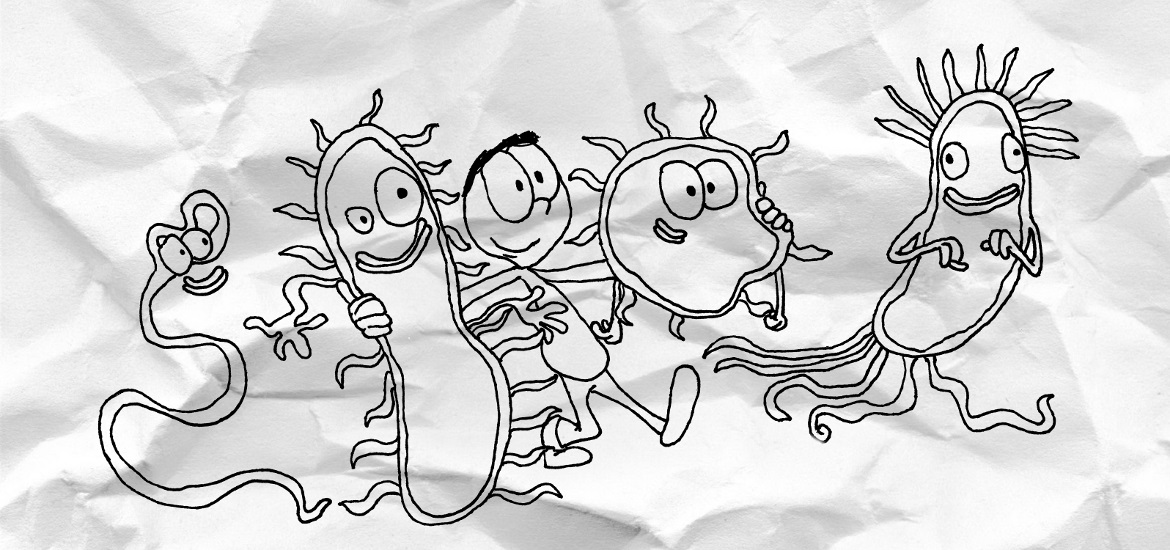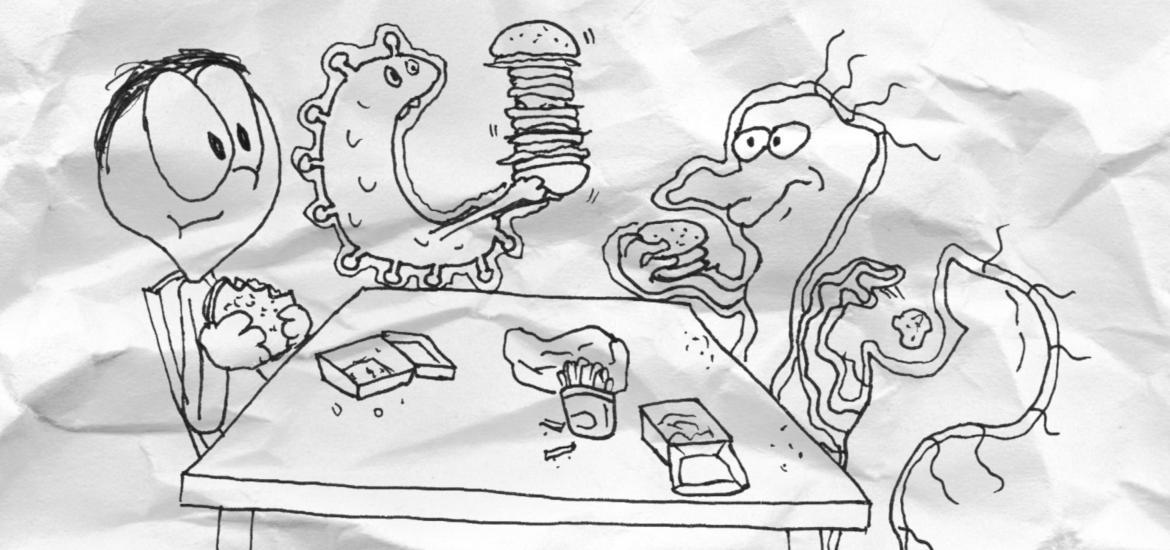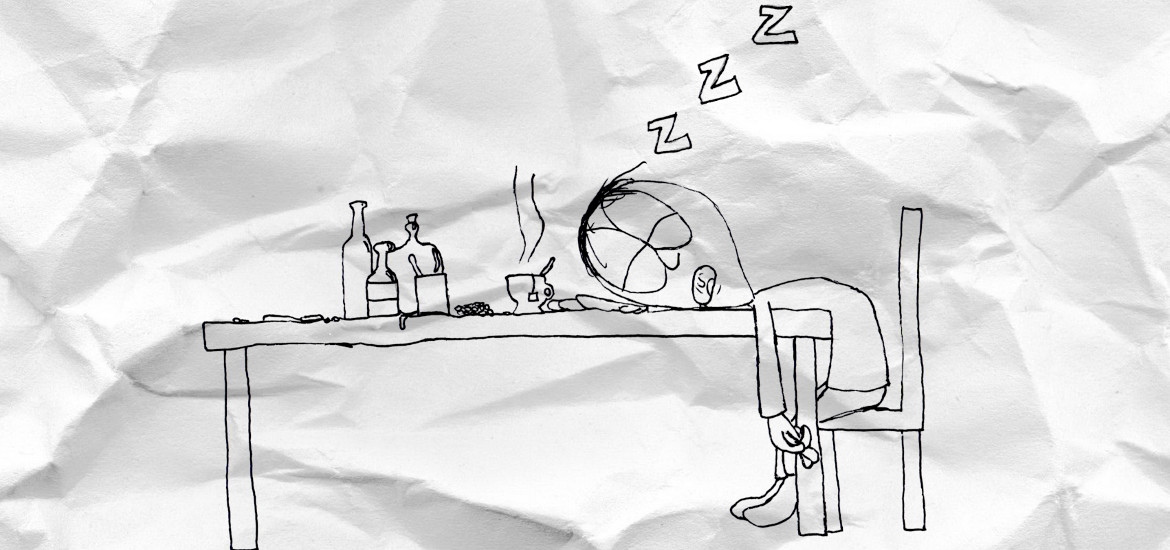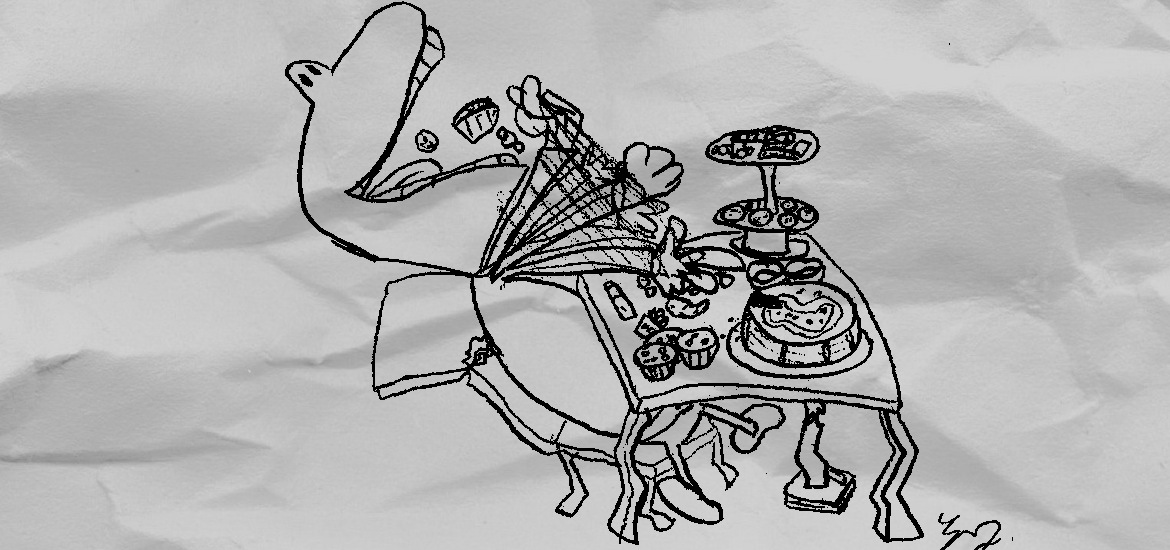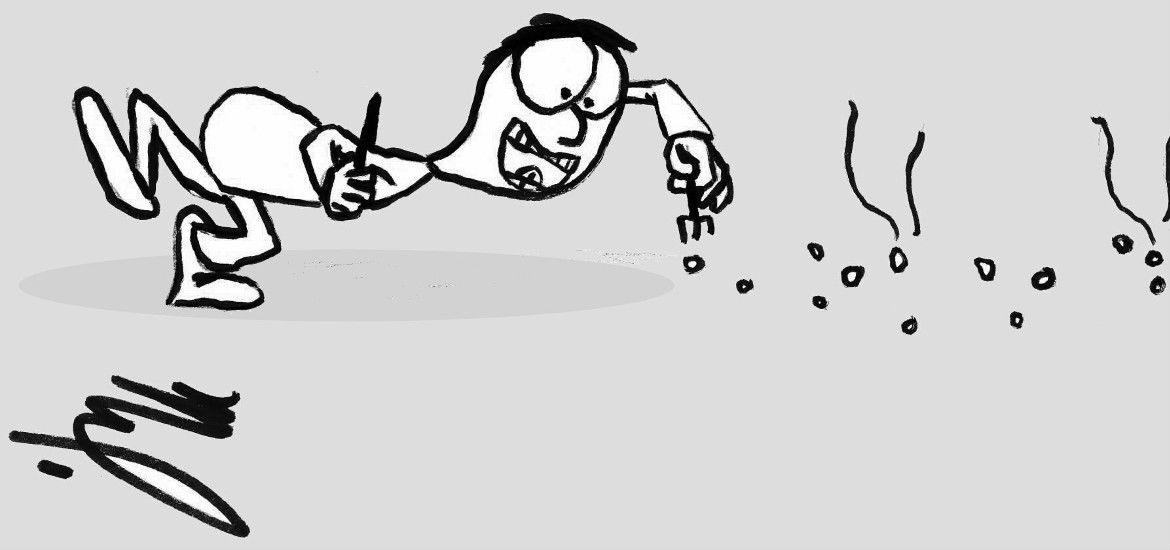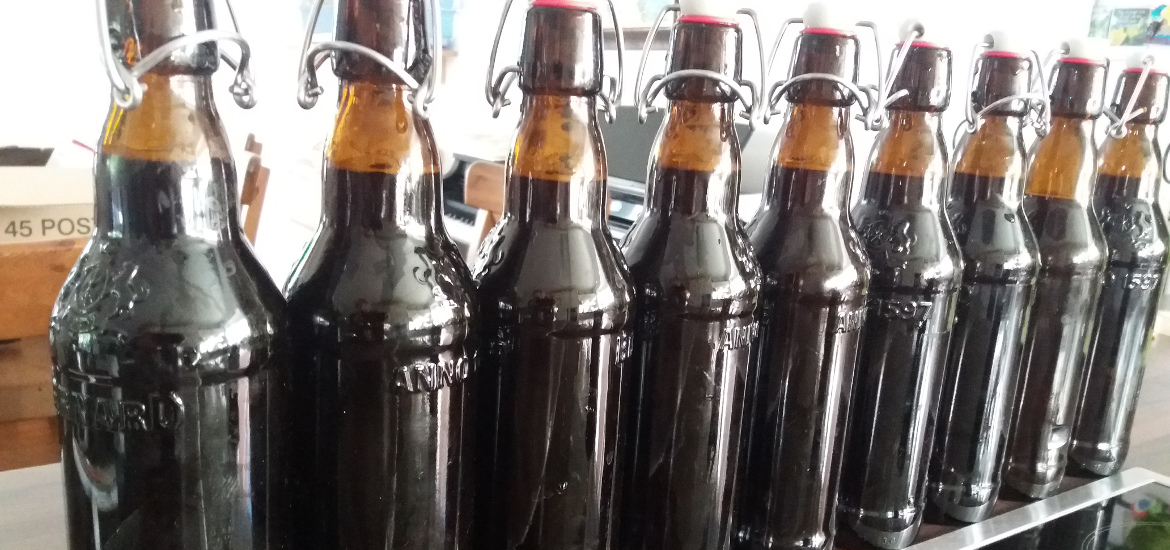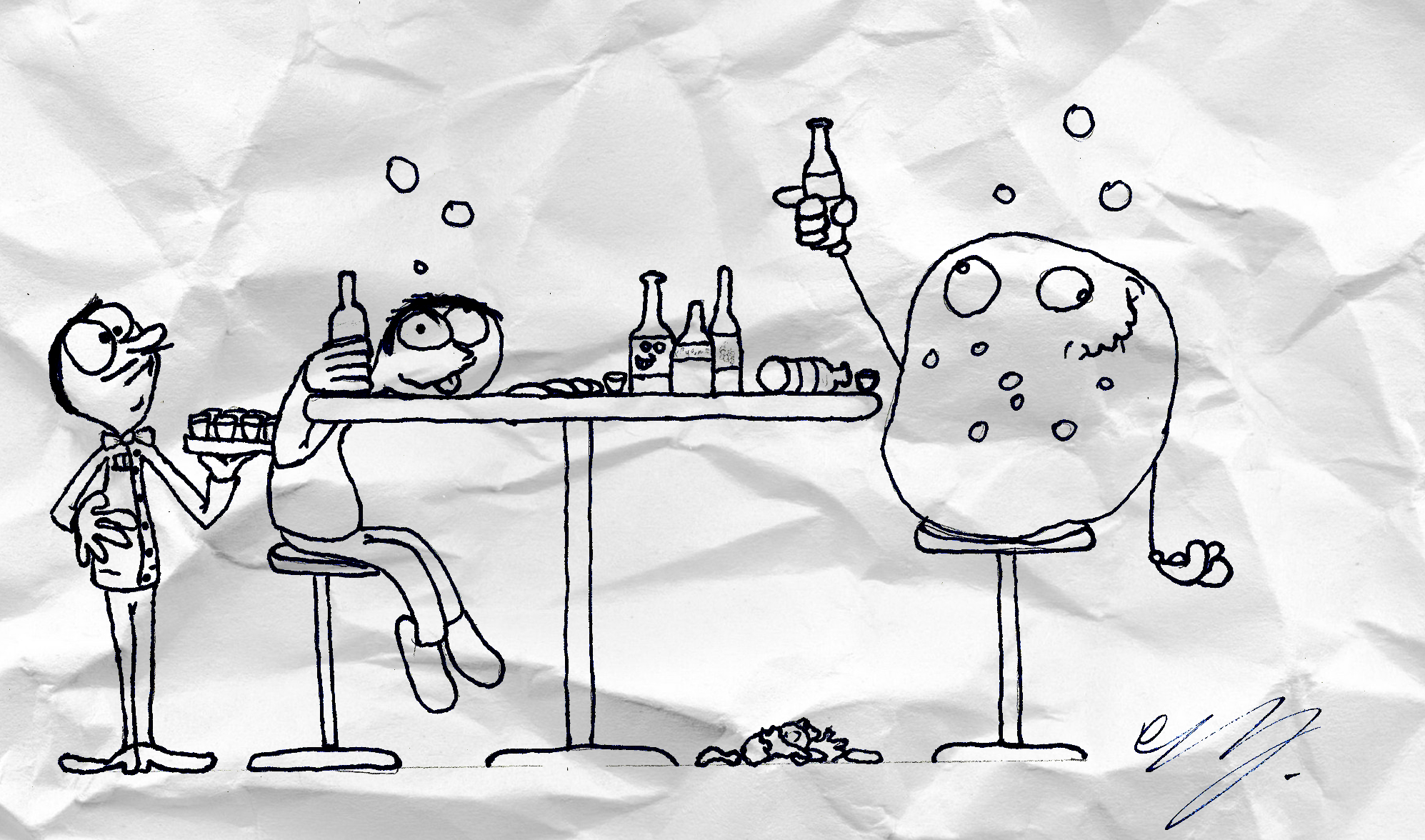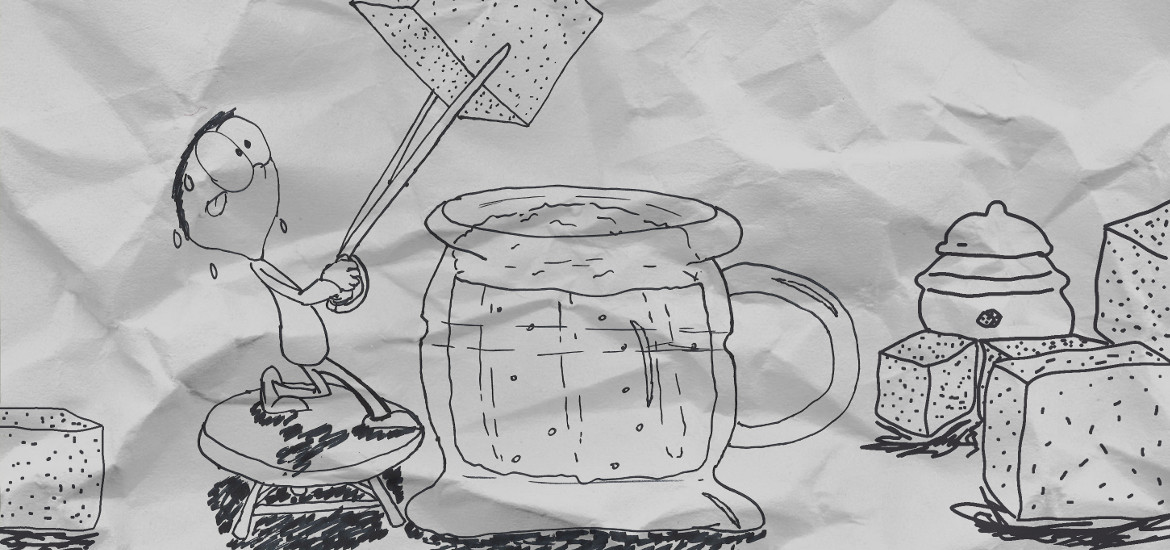The fascinating thing about the microbes living in our gut is that they actually outnumber the number of cells in our body. And with that variety, you cannot deny that gut microbes must be important for our well-being. They are contributing at least something. However, we are still in the process of unraveling all the secrets of our gut microbiota, but we have some idea of their importance. There are numerous articles like the one mentioned above and new ones being published daily.

We have successful, although poorly understood, fecal transplants from one person to the other curing Clostridium difficile infection and numerous other indication in the clinical research. There are even trying to make poop extract that you will swallow in a pill, although the success is still lacking. And finally, we have numerous aids to help our gut flora. For instance, non-prescription drugs, food supplements or even stuff added directly to our food
And this supplements and stuff in our daily food is what interests me in this post. What is good for us? And what makes no change? What should we eat in addition to improve our gut microflora? What is harmful? These are the questions that I will try to explore further.
Gut microbes quick guide
Some quick guide to our gut microbes is in order before we delve any deeper. The human gut is approximately 9 meters long, but this can vary considerably. It is inhabited by thousands of different microbe types throughout all its length. For our little investigation, we will consider only microbes from small and large intestine which represent more than 80% of the gut length and offer home to the majority of microbes.
From what we know now, around 1000 types of microorganisms live in our gut, with lactobacillus and escherichia being the most recognizable, although not the most frequent. Their composition is not constant but it changes considerably due to many factors, including food, lifestyle, age, illnesses and so on. Even drugs that are not expected to have any effect, in contrast to antibiotics, can influence our gut microbes as shown here.
Therefore we cannot speak about one “natural” gut flora but about several different ones. Currently, there are 7 main types identified. We can safely say that you are unique also in the sense of gut microbes – similar to some people but distinct in details.
Drugs
The easiest way to improve our gut flora is to add more of it. This is easily done since there are numerous preparations on the market in the form of non-prescription drugs. This definitely improves your gut flora and have – as do all registered drugs – their set of indications. Usually, they are used to treat diarrhea and the gastric side effect of antibiotics.

But naturally, they can be used whenever you want since no serious side effects are expected – except the one on your wallet. However, they are not similar in composition and you must find out, which one is the most suitable for you.
Supplements
First, as supplements I consider relatively well defined, pure substances, that claim beneficial effects. That is the effect on gut flora, not the gut itself, like so many popular supplements today (e.g. enzymes, l-glutamine, and quercetin). Also, this is not something that is added to your yogurt or smoothy. And frankly, if you eat diverse and quality food and use drugs containing bacteria in times of need, you do not need additional supplements.
The most common supplements used to improve gut microflora are inulin, lactic acid, oligofructose, magnesium, D vitamin, and l-glutamine. As said before, eating a balanced and healthy food should be enough. There is no need for any of the things above. Further, looking at this from the other perspective, it is really hard, practically impossible, to compensate poor diet with supplements.

I will only touch upon l-glutamine since it is claimed on the internet that taking glutamine can benefit your gut microbes as well the gut itself. Well, glutamine is one of the most frequent amino acids. And you should get it plenty from any protein source, whether animal or vegetal. Second, your bacteria are more than capable to synthesize their own glutamine, so they are not solely dependant on what you give them. There is a good book dealing with glutamine and you should read it if you are really interested.
Finally, glutamine did show some beneficial effect in terms of gut integrity for some patients. But if you are not receiving your food intravenously, you will receive little benefit from taking glutamine. Overall, beneficial effects of glutamine supplementation were inconclusive in many patients, therefore it is even less likely to benefit healthy individuals.
Food
There are a lot of things present in or added to food claiming beneficial effects. Usually, they are named probiotics or prebiotics and are mostly added (or present) in fermented food (e.g. yogurt, kefir, kombucha). Pro/prebiotics are things that stimulate the growth and proliferation of microorganisms in our gut.
Keep in mind that microorganisms themselves are also present or added to our food (who do you think does all the fermenting?) and also called probiotics. So the terms are quite flexible. Anyway, as you might figure by now all fermented food contains microbes as well as substances that favor microbial growth. So your first stop for probiotics is yogurt, sauerkraut, kefir, cheese, sourdough bread and so on.
Next are the fibers – they provide a suitable environment for the microbes as well as other benefits for your gut like bulk mass and proper hydration. Inulin is the one fiber most frequently mentioned, but there are numerous other, which play an equally important role. In general, eating vegetables and fruit should cover all the fiber needs. For inulin, bananas and garlic are good options, while all other common fiber sources like apples and bran are still an important part of a healthy diet.
A good article on the importance of fiber can be found here. Finally, there are things added to our processed food claiming the probiotic benefits. As already described, if these are bacteria or fiber, they might really do what is claimed. All other additives are more questionable. And even with bacteria or fiber, there is always a question of type and amount. Especially the latter being rarely stated. Even the most beneficial thing does not help if you consume one molecule of it. So the final advice would definitely be to eat whole food and use the food with additives only as a backup.
Conclusion
The final conclusion is simple and is not something new. Eat well-balanced food, used fresh or lightly processed food and find out which type of food works for you.
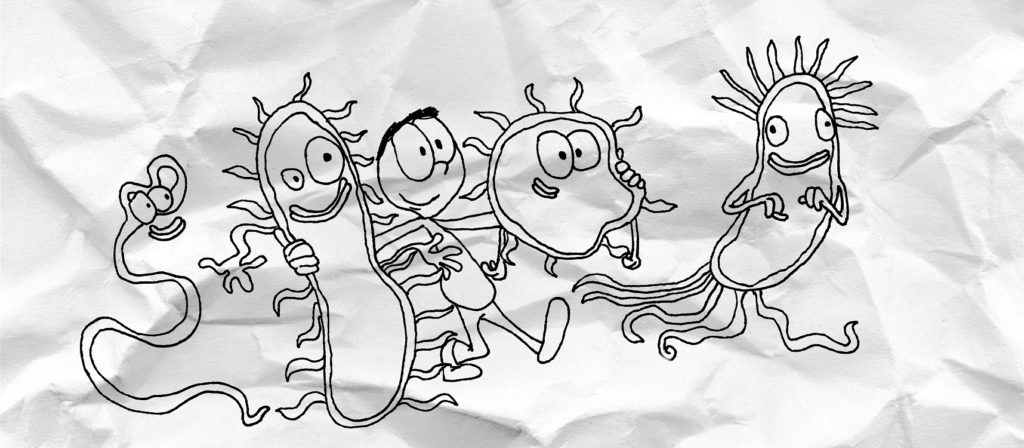
Image credit: Amazing food
